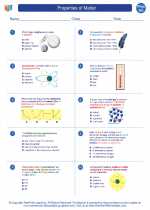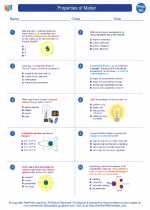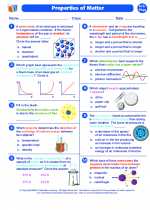Cells
Cells are the basic structural and functional units of living organisms. They are the smallest units of life that can replicate independently, and are often referred to as the "building blocks" of life.
Cell Structure
Cells have a variety of structures, but all cells contain certain basic components. The main parts of a cell include:
- Cell Membrane: A thin, flexible barrier that surrounds the cell and regulates what enters and leaves the cell.
- Cytoplasm: A jelly-like substance that fills the cell and contains various organelles.
- Nucleus: The central organelle that contains the cell's genetic material (DNA).
- Organelles: Various specialized structures within the cell that perform specific functions, such as mitochondria for energy production and endoplasmic reticulum for protein synthesis.
Cell Types
There are two main types of cells:
- Prokaryotic Cells: These are simple, single-celled organisms that lack a nucleus and other membrane-bound organelles. Examples include bacteria.
- Eukaryotic Cells: These are more complex cells found in plants, animals, fungi, and protists. They have a nucleus and other membrane-bound organelles.
Cell Functions
Cells perform a wide range of functions essential for life, including:
- Metabolism: Cells carry out various chemical reactions to maintain life, such as breaking down nutrients for energy.
- Reproduction: Cells can replicate to produce new cells through processes like mitosis and meiosis.
- Response to Stimuli: Cells can respond to external and internal stimuli to maintain homeostasis.
- Growth and Development: Cells can grow and differentiate into specialized cell types during development.
Studying Cells
When studying cells, it's important to understand their structure, function, and significance in living organisms. Here are some key concepts to focus on:
- Cell Organelles: Understand the structure and function of organelles such as the nucleus, mitochondria, endoplasmic reticulum, Golgi apparatus, and lysosomes.
- Cell Division: Learn about the processes of mitosis and meiosis, and how they contribute to growth, repair, and reproduction.
- Cell Types: Differentiate between prokaryotic and eukaryotic cells, and understand their differences in structure and function.
- Cellular Processes: Explore cellular respiration, photosynthesis, protein synthesis, and other key metabolic processes.
- Cell Signaling: Investigate how cells communicate with each other through signaling pathways and receptors.
By grasping these fundamental concepts, you will develop a strong foundation in understanding the role of cells in living organisms.
[Cells] Related Worksheets and Study Guides:
.◂Physics Worksheets and Study Guides High School. Properties of Matter
Worksheet/Answer key Properties of Matter
Properties of Matter  Worksheet/Answer key
Worksheet/Answer key Properties of Matter
Properties of Matter  Worksheet/Answer key
Worksheet/Answer key Properties of Matter
Properties of Matter  Worksheet/Answer key
Worksheet/Answer key Properties of Matter
Properties of Matter 

 Worksheet/Answer key
Worksheet/Answer key
 Worksheet/Answer key
Worksheet/Answer key
 Worksheet/Answer key
Worksheet/Answer key

The resources above cover the following skills:
Concepts of Physical Science: A student should understand and be able to apply the concepts, models, theories, universal principles, and facts that explain the physical world. A student who meets the content standard should:
Develop an understanding of motions, forces, their characteristics and relationships, and natural forces and their effects.